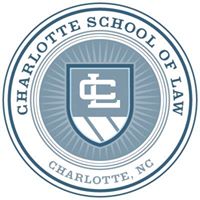Charlotte School of Law vows to fight Dept. of Ed's 'final' ruling denying student financial aid

Updated: Charlotte School of Law has backed away from a teach-out plan, and its students will no longer receive federal student aid, the U.S. Department of Education announced Wednesday.
The teach-out plan would have allowed students to attend Florida Coastal School of Law, which like CSL is owned by Infilaw. Conditions included all current CSL students being eligible for certain “refund rights,” including a full refund for first-year students, and law school loan discharge for other students who didn’t complete their law degree through the teach out, wrote Ted Mitchell, the department’s under secretary, in an email to students Wednesday.
“Since reaching that agreement with CSL, the department has been working to memorialize the agreement in writing while encouraging CSL to be fully transparent about student options under the agreement,” the email reads. “CSL, however, has since rejected what it had previously accepted and has informed the department that it will not be accepting the conditions set.”
Assuming that the school continues to operate without federal loan money, students may not be eligible for federal loan discharge, according to Mitchell’s email.
Charlotte School of Law in a Thursday morning email to students said that the department decision was made without “proper cause, justification or the barest semblance of due process.” It states that Charlotte Law School “will continue to fight aggressively” for student interests when Donald Trump’s administration is in place.
“We believe that the department’s action, specifically substituting its judgment for that of the American Bar Association, which continues to accredit the school, is contrary to federal law and the department’s own regulations,” the email reads.
Meanwhile the Charlotte Observer reported Thursday afternoon that it has learned from sources that up to two-thirds of the Charlotte School of Law faculty has been fired.
According to the article, the cuts will kill some of CSL’s legal clinics, including an immigration clinic that has more than 50 open cases.
A law school spokesperson told the newspaper that the school expects to have fewer students for the spring 2017 semester, and that the “good work that CSL faculty and staff have done in the community through our clinics will continue.”
The ABA has directed Charlotte School of Law to file a teach-out plan, Barry Currier, managing director for the Section of Legal Education and Admissions to the Bar, wrote in a statement (PDF) released Thursday. He expects that the council will review the plan at its meeting from March 10-11.
“We are aware of news reports of further decisions by the Department of Education,” Currier wrote. “We can say nothing further until the school’s plans become clear and the Council has had an opportunity to review its teach-out plan, as well as other materials requested when the Council placed the school on probation in fall of 2016 and directed it to take specific remedial action.”
“Given the timeline for the school and its students, we would expect the school to not only file its plan in a timely fashion, but begin executing it,” Currier wrote. “Nothing in the teach-out rules bar a school from beginning to address the needs of the students in advance of the plan being reviewed. The council’s review will cover both what the school has done and proposes to do to fulfill its responsibilities under the teach-out plan rules.”
It’s estimated that 700 students attend the law school, the Charlotte Observer reports. Annual tuition is $42,320 for full-time students, and $33,858 for those in the part-time program, according to the law school’s website. The school’s bar passage rate for first-time test takers was 46.26 percent, the school’s 509 report for 2016 states.
Students told the Observer that no class schedules have been released for the semester scheduled to begin Monday. The newspaper also reports that there have been “rumors” that faculty has been informed of potential layoffs.
In December, it was reported that federal loans for Charlotte School of Law students were in jeopardy after a Department of Education finding that the school made “substantial misrepresentations” to current and prospective students regarding its compliance with ABA accreditation standards.
The ABA first informed the law school that it was out of compliance with various standards in February 2016, and again in July 2016. At neither time was the information shared with current or prospective students, according to the education department. The standards in question include 301(a), which states that law schools must maintain a legal education program that prepares students to be lawyers, and 501(a) and (b), which address admissions policies and practices.
Charlotte School of Law appealed the ABA finding, which was upheld (PDF) in October. At that time, the Council of the ABA’s Section of Legal Education and Admissions to the Bar placed the law school on probation. It remains an ABA-accredited law school.
The ABA’s Section of Legal Education and Admissions to the Bar in December issued a FAQ sheet (PDF) about the Department of Education’s findings. It noted that the law school had been placed on probation, and the notice “spells out the process” for what the school should do to remove itself from probation status. It also stated that the Department of Education action was a “separate action” from the accreditation process.
Updated at 9:54 a.m. with the law school’s email to students; updated at 11:44 a.m. to add Barry Currier’s comments; updated at 4:41 p.m. to add reports of faculty firings.



